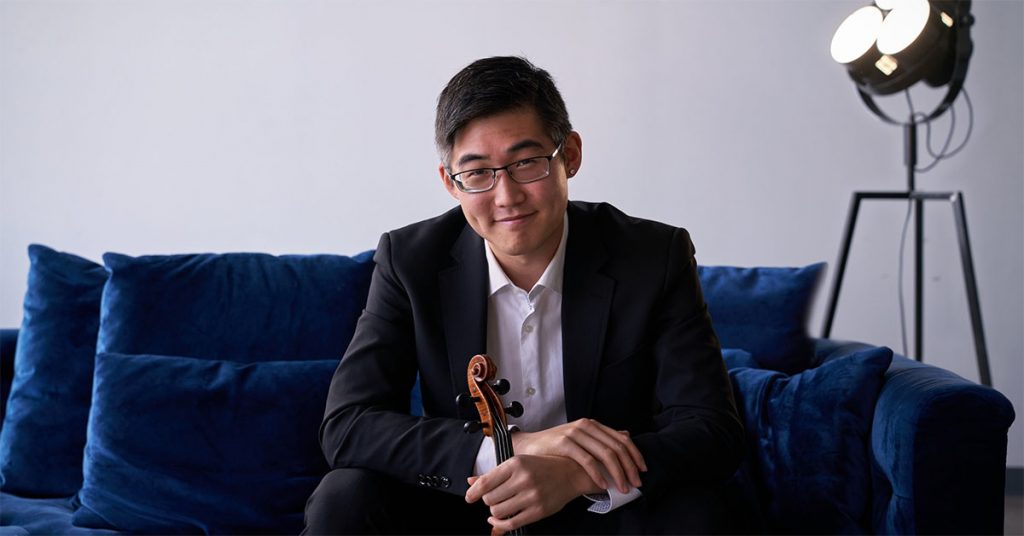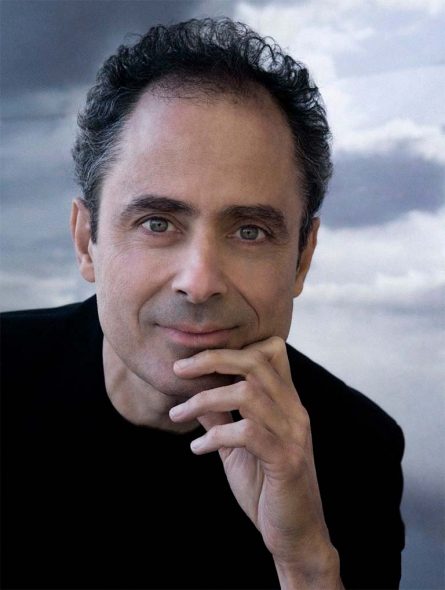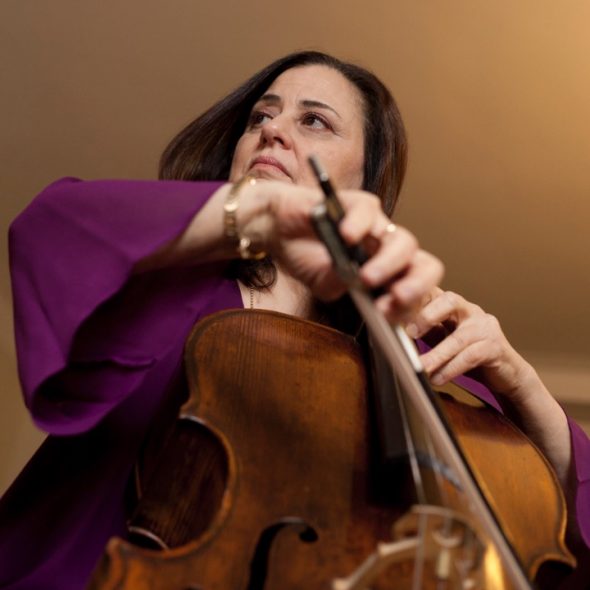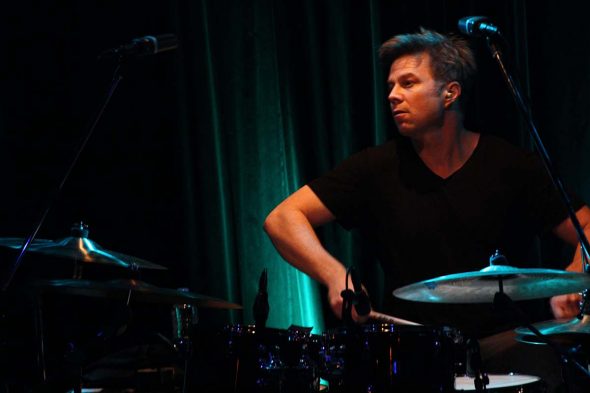Four Great Composers Targeted by Hitler
Frankly Music performs music by Jewish composers who were killed in Holocaust or fled to America.
Next Wednesday evening, Frankly Music offers a Concert of Remembrance: Ashes and Echoes, one of a series of concerts responding to the five-month residency of a violin collection, entitled the Violins of Hope. The violins survived the Holocaust. Their collection and display present the opportunity to reflect on a critical period in world history and its devastating impact on Europe’s Jewish community. Many classical music organizations in Milwaukee have created programming to mark the residency. The series of events has been organized by the Milwaukee Youth Symphony Orchestra program.
One guest musician, violinist Eugene Drucker, understands the Holocaust through the experiences of his father, Ernst Drucker, who lived through the chaos of pre-war Germany as a Jewish musician. Ernst escaped to the United States in 1938. Drucker will appear at a separate event on Monday evening, October 27, where he will read from a novel he has written, The Savior, informed by his father’s experiences. He will also speak briefly at the Frankly Music event.
Drucker was a founding member of the distinguished Emerson Quartet, which performed from 1976 to 2023. He has taught at Stony Brook University since 2002, and recently joined the faculty of the Manhattan School of Music
Frank Almond and Drucker will open the concert with piano duo works by Hungarian composer Béla Bartók (1881-1945), considered one of the most important composers of the twentieth century. An outspoken, though not politically active critic of Hitler, he emigrated to the United States in late 1940. The move was not a happy one. He had few opportunities to compose until friends arranged a few key commissions. Bartok’s Third Piano Concerto and his Concerto for Orchestra were written at this time, even as he was struggling with a fatal health condition.
As a result of his pioneering ethnomusicology work, Bartók created Selected duos for two violins, Sz. 98 (1931) as a graded series of books for violin students. Drucker and Almond have each used the duos in their teaching. They have selected a set of these short works to open the concert.
Violist Brian Hong, now teaching at the University of Cincinnati and Co-Artistic Director of NEXUS Chamber Music Chicago, and cellist Roberta Cooper, assistant principal cellist of the American Symphony Orchestra and active chamber musician, will join violinist Drucker in a string trio by Gideon Klein (1919-1945.)
Klein’s promising academic career was abruptly terminated in 1940 when the Nazis closed Czech universities and barred him from accepting a place at London’s Royal Academy of Music. After attempting to continue his musical activities under the pseudonym Karel Vránek, he was deported to Theresienstadt (Terezín) concentration camp on December 4, 1941, where he remained for nearly three years. His Trio for Strings (1944) represents his final composition, written just days before his deportation to Auschwitz, where he was murdered in January 1945 at age twenty-five.
As musicologist David Fligg observes, the work represents “one of the 20th century’s most exquisite pieces of chamber music,” demonstrating Klein’s remarkable artistic maturation under extreme adversity.
Almond, Drucker and Hong will play a trio for two violins and viola by Ernst Toch (1887-1964). Toch was largely self-taught as a composer, studying medicine and philosophy at the University of Vienna while secretly developing his musical skills by copying scores in the Austrian National Library.
Although establishing a reputation as a composer in 1920s Europe, Toch’s position became untenable with the rise of Hitler’s regime. The Miliken Archive site recalls the experience: “In 1933, with the installation of the National Socialist regime in Germany, Toch’s music automatically fell into the category of ‘degenerate music’ by virtue of his being a Jew, and its performance outside strictly Jewish confines or auspices was forbidden. Toch’s deliberately distorted photograph subsequently appeared alongside those of fellow ‘forbidden’ or ‘degenerate’ composers—such as Schoenberg, Weill, Mendelssohn, Mahler, and Offenbach—in a special anti-Jewish issue of the well-known German music journal Die Musik, in which Hitler’s maxim was also quoted: ‘The Jew possesses no power or ability to create culture.’ Many of Toch’s scores, together with others by Jewish composers, were soon burned.”
Toch emigrated to America in 1934, adapted by focusing on film scores. Toch scored an additional thirteen motion pictures, but his serious concert music did not find much of an audience in America, and this became a source of growing frustration and even disillusionment for him.
It is his early trio, the Serenade “Spitzweg”, Op. 25 (1917) which will be performed, and demonstrates his remarkable facility for combining traditional forms with contemporary harmonic language. Despite being written amid the chaos of World War I, the work’s sensuous string sonorities and expansive melodies convey the idyllic and peaceful atmosphere inspired by paintings of artist Carl Spitzweg.
All four string players will play selections from a string quartet by the established composer Pavel Haas (1899-1944). Haas was one of Leoš Janácek’s most gifted students. His String Quartet No. 2 “From the Monkey Mountains” (1925) is considered to be one of the high points of his productive career.
Haas was deported to Theresienstadt in December 1941 and murdered at Auschwitz in October 1944, leaving behind a modest but distinguished output.
In String Quartet No. 2, Haas combined elements of Janácek’s compositional technique with jazz, particularly in the fourth movement’s instrumentation. Frankly Music will play the third and the fourth movement of String Quartet No. 2.
The third movement, ‘The Moon and I’ (Largo e misterioso), represents the quartet’s emotional center, creating what Haas described as ‘the cold play of moonlight’ through subtle timbral effects and intimate lyrical expression. The concluding ‘Wild Night’ (Vivace e con fuoco) brings the work to an exuberant close through Haas’s most experimental writing, that synthesizes folk melodies with jazz elements.
The rhythm and energy of the finale is enhanced by adding the (optional) percussionist. Almond chose the work in part to have the opportunity to feature his brother Cliff Almond as a guest. Cliff Almond’s percussionist career is centered on rock and jazz ensembles. There are few opportunities for the brothers’ work to overlap.
This concert offers a rare opportunity to hear works by composers often forgotten played by top chamber musicians.
The concert begins at 7:00 p.m. on Wednesday, October 29 at Milwaukee Youth Arts Center at 325 W. Walnut St. Tickets may be purchased online or at the door.
Programs have yet to be announced for the last three concerts of the Frankly Music series. They will be held Monday evenings in Schwan Concert Hall at Wisconsin Lutheran College on Jan. 26, March 16, and May 4, 2026.

Existing members must be signed in to see the interactive map. Sign in.
If you think stories like this are important, become a member of Urban Milwaukee and help support real, independent journalism. Plus you get some cool added benefits.
Preview
-
A Sacred Choir, 70 Voices Strong
 Dec 14th, 2025 by Martha Brown
Dec 14th, 2025 by Martha Brown
-
Prometheus Trio Goes Bohemian
 Dec 3rd, 2025 by Martha Brown
Dec 3rd, 2025 by Martha Brown
-
Present Music Offers New Choral Works
 Nov 20th, 2025 by Michael Barndt
Nov 20th, 2025 by Michael Barndt
























This was nice story but I think you forgot to include Almond’s first name.